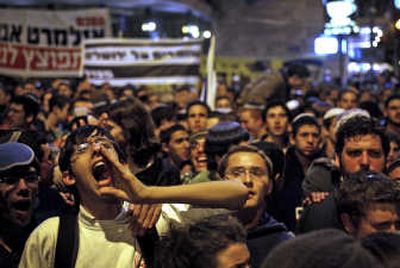Middle East talks: the central issues

Peace negotiations between Israel and the Palestinians will center on these core issues:
Borders and settlements
The Palestinians demand that the borders of their future state include all of the West Bank and Gaza Strip – territories Israel captured in the 1967 Middle East War. Israel’s withdrawal to its pre-1967 borders would require the removal of 122 Jewish settlements with a population of 267,500 from the West Bank. Israel withdrew troops and settlers from Gaza in 2005.
Israel seeks to retain about 8 percent of the West Bank, keeping settlements adjacent to Jerusalem that are home to about 200,000 Jews. It is building a barrier to separate those settlements from the rest of the West Bank.
Negotiations could focus on a possible compromise giving Israel part of the West Bank territory it wants to retain in return for ceding to the Palestinians a similar quantity of land elsewhere. The Palestinians have proposed a land swap involving no more than 2 percent of the West Bank.
Refugees
The Palestinian Authority insists that more than 4 million Palestinians whose families fled their homes just before or during Israel’s 1948 war for independence are entitled to a “right of return” to what is now Israel.
Israel opposes any return of Palestinian refugees, fearing that the influx could give Arabs a majority of the population and lead to destruction of the state’s Jewish character. Israel leaders insist on explicit Palestinian recognition of the right of two peoples, Jews and Palestinians, to have separate states.
Palestinian leaders privately have acknowledged that most of the refugees will not be allowed to return.
A proposed compromise would allow a small percentage of them to be reunited with relatives in Israel, while requiring Israel to provide compensation and resettlement assistance to the remaining refugees.
Jerusalem
Israel wants to keep control of what it considers its “eternal and undivided” capital, retaining sovereignty over the Old City and other eastern neighborhoods it captured in 1967.
The Palestinians, who account for about one-third of the city’s 732,100 people, want to recover East Jerusalem and make it the capital of their state.
Israeli Prime Minister Ehud Olmert indicated this month that he was ready to relinquish outlying Arab neighborhoods of the city but not the Old City.
An often-discussed compromise would involve a power-sharing arrangement for the Old City.
– Los Angeles Times